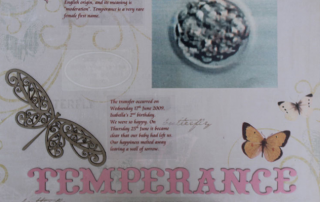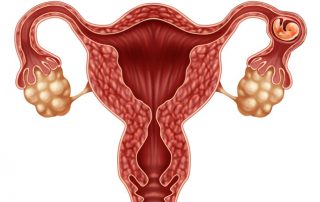Miscarriage
While the majority of pregnancies proceed normally, about one in five pregnancies ends in miscarriage. The loss of a pregnancy can come as a shock, and the physical and emotional symptoms may be difficult. Many questions can arise, such as: What causes miscarriage in early pregnancy? Was it something I did? Are there different types of miscarriages? What tests and treatments are available? What can I do to recover from a miscarriage? Is there support available following a miscarriage?
If you have been affected by miscarriage or are worried about its possibility – perhaps you have experienced some bleeding or pain and are waiting to know what is happening – we hope that you’ll find the information in this section will allay your fears or help you through your experience.
Miscarriage Articles
What kinds of miscarriage support can you access in Australia?
After losing a pregnancy, as so many women do, the emotional fallout can be devastating. And there are practical problems to solve too. Knowing what miscarriage support is available can make a difficult experience easier. Miscarriage support at work In 2021, pregnancy loss support in Australia increased. Women now receive two days of paid compassionate leave after having a miscarriage. Casual employees are entitled to the two days, but their leave is unpaid. After those first two days, you
Pregnancy after Miscarriage
Your experience of pregnancy after miscarriage is rarely as straightforward as the first time you learned you were pregnant. This time, along with joy, relief and hope, you might have less pleasant feelings. Maybe you’re worried about this baby’s health or grieving your previous loss. Consequently, you might feel guilty that you’re not more excited, or impatient to reach each milestone of this pregnancy. However you feel, it’s okay to have a range of emotions. Will it happen again?
Molar Pregnancy
By Hannah Dahlen A molar pregnancy, otherwise known as an Hydatidiform Mole, occur when a part of the baby that forms the placenta becomes quite abnormal. This can occur when a sperm penetrates an empty ovum (female’s egg) or when a couple of sperm enter an ovum. It occurs about 1 in 1000 to 2000 pregnancies. The mole can be complete, meaning there is no baby present, or partial where there is some part of the baby present. Women
Loosing Temperance
When you see an embryo, your embryo, on a screen in an embryology lab it can be hard to resist not falling in love with the hope that this tiny mass of cells offers. There it is. Your baby. And if it can just hold on long enough, you will hold him or her in your arms just 40 short weeks from now. It’s such a difficult emotional balance. You want to stay positive, give your embryo the best
Little Girl You Left So Soon
By Yvette Barton Little girl you left so soon. I wept so hard and so long, but my tears would not return you. You were both my blessing and my agony. I knew not how I would ever go on. But relentless, time refused to stop, and sit by me, on the floor, while I cried. It forced me up and onward. Forward through so many more losses. Agony blurring into agony. I clung to you then as though
Bleeding in Early Pregnancy
By Jane Palmer Bleeding at any stage of pregnancy is not considered normal. If this happens to you then you should see your midwife or doctor. Bleeding from the birth canal before 20 weeks is called a threatened abortion or miscarriage. The bleeding may or may not have abdominal pain associated with it. The blood loss may be brown spotting, blood stained discharge or bright red bleeding. In fact, the amount of bleeding is proportional to the risk of
Understanding Miscarriage
Miscarriage affects the lives of many women and their partners and the true impact is often underestimated by health professionals, family and friends. Just because miscarriage is a relatively common event does not mean it is insignificant or that it should, or will, soon be forgotten. Why does miscarriage happen? Miscarriage is a term used for loss of a baby before 20 weeks of pregnancy. In Australia every year more than 50,000 pregnancies end in miscarriage or stillbirth. It
Miscarriage
Pregnancy loss or Miscarriage can have a profound impact on parents. The term miscarriage refers to early pregnancy loss. Miscarriage is common, around one in five pregnancies ends in miscarriage. Parents reactions to miscarriage can vary from not been hardly affected at all to the miscarriage being a devastating life event. Support and information can help parents at this very difficult time. Two websites that may be of assistance are: www.miscarriage.org.nz www.sidsandkids.org The following poem was written by Nicole
Ectopic pregnancy
Any pregnancy that occurs outside of the uterus is called an ectopic pregnancy. The most common site for an ectopic pregnancy is in one of the fallopian tubes that lead from the ovary to the uterus. During conception, the sperm will fertilize the woman’s ovum (female egg) in the narrow fallopian tube. This fertilised egg begins to divide and moves into the uterus over the next couple of days. If the fallopian tube is scared or narrowed the pregnancy
The Sound of Silence Journeys Through Miscarriage
This is a review of ‘The Sound of Silence: Journeys Through Miscarriage. As a midwife, I often find myself in the position of supporting women through a miscarriage in early pregnancy. Each time, it breaks my heart as the woman grieves for her lost baby. I want to be able to support women in the best way possible through their individual journeys. When I was offered the opportunity to review the book ‘The Sound of Silence: Journeys Through Miscarriage’

 Wish List
Wish List









